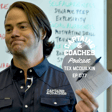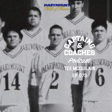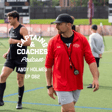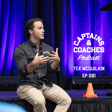
065 - The Science of Selling Yourself Short
In this deeply personal episode, host Tex explores how self-image shapes athletic performance and coaching effectiveness—sparked by a painful realization about his own self-deprecating behavior and a recent loss that brought these lessons into sharp focus.
Key Topics:
- Why your performance will never rise higher than your self-image
- The coach expectation cycle and how first impressions shape outcomes
- Understanding the athlete's mind: self-discrepancy theory (actual self vs. ideal self vs. ought self)
- Warning signs of low self-esteem: negative self-talk, perfectionism, and body language cues
- The difference between guilt (a feeling) and shame (a belief)—and why it matters
- Practical coaching tools: managing expectations, building mastery-focused environments, and applying self-determination theory (autonomy, competence, relatedness)
- How belief drives behavior, which drives performance
Tex shares vulnerable insights from his college athletic career, failed opportunities where he talked himself down, and the coaching wisdom gained from years of studying esteem and athlete psychology.
The episode culminates with a heartfelt tribute to his late friend and former teammate Drew—a fearless competitor who embodied unwavering self-belief.
For coaches: Learn to read the gaps between who your athletes are and who they think they should be, and discover how instruction beats criticism every time.
#SportsCoaching #AthleteMindset #SportsLeadership #CoachingPsychology #SelfEsteem #AthleticPerformance #MentalToughness #CoachDevelopment #SportsConfidence #YouthSports



















